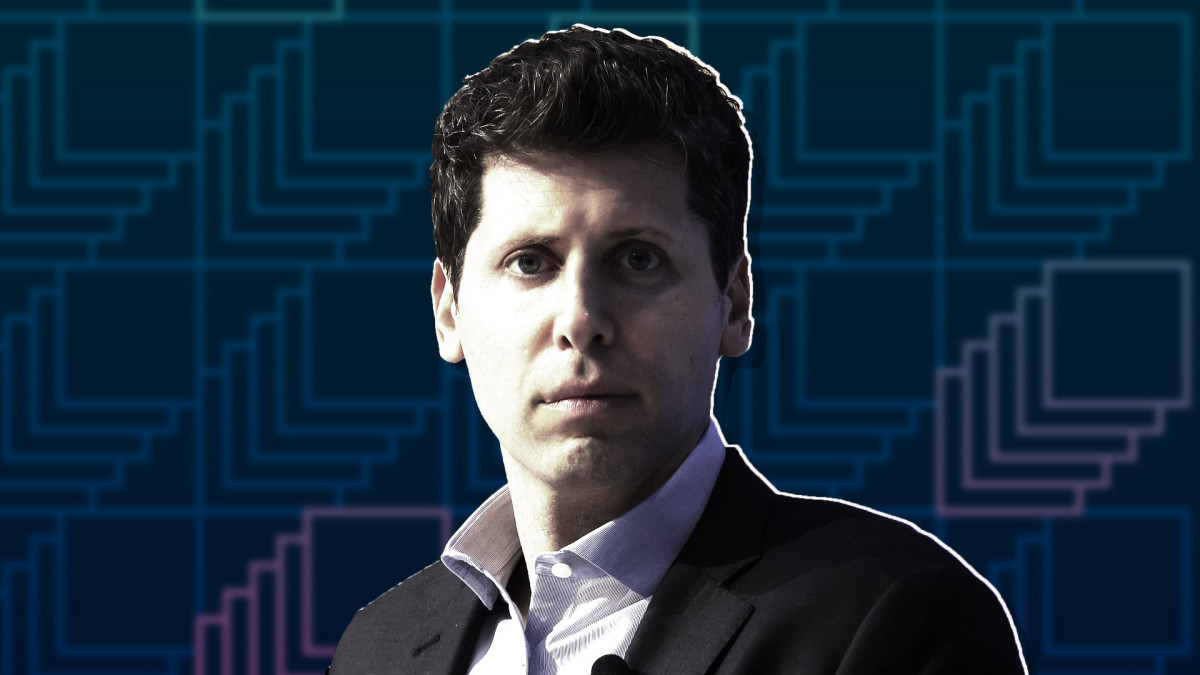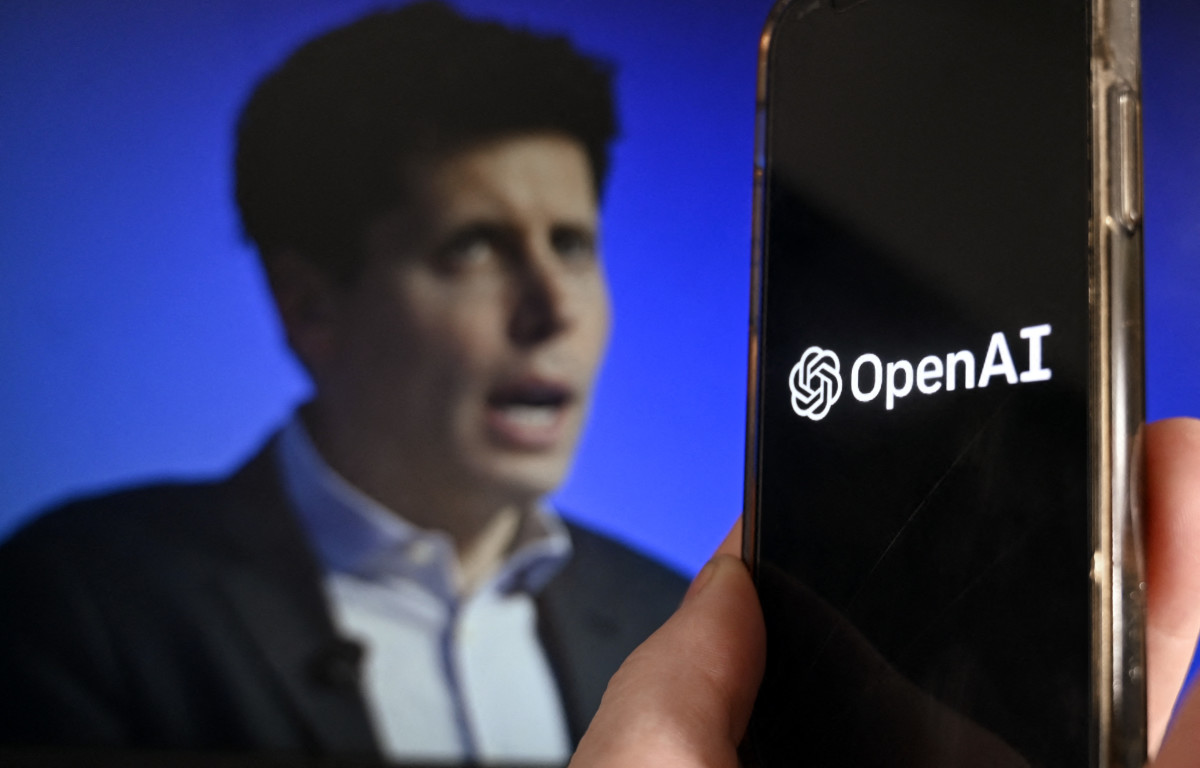
OpenAI's dominance as an artificial intelligence leader could end following a surprising decision to cut ties with co-founder and CEO Sam Altman.
The decision by OpenAI's board of directors has drawn the ire of many insiders at the company, including former Stripe Chief Technology Officer and OpenAI co-founder Greg Brockman, who resigned in protest of the decision.
The management shakeup could expand much further, given over 700 OpenAI employees just issued the board of directors an ultimatum.

OpenAI establishes its edge in artificial intelligence
OpenAI was founded in 2015 as a non-profit to develop artificial intelligence unfettered by the goal of making money. The company's founders included a who's who of technology insiders, including Altman, who gained renown for his time at Y Combinator, a highly-regarded source of start-up seed money.
Other OpenAI founders included mercurial Tesla (TSLA) -) CEO Elon Musk, Brockman, venture capitalist and PayPal co-founder Peter Thiel, former LinkedIn co-founder Reid Hoffman, Amazon Web Services, and others. Altogether, these founders invested $1 billion to create an artificial general intelligence.
Related: Salesforce CEO makes 'can't-miss' offer to OpenAI workers
Musk left OpenAI's board in 2018 to avoid a conflict of interest because of Tesla's own AI ambitions, including autonomous driving. Thiel's AI focus has shifted to Palantir (PLTR) -), a software company that cut its teeth solving complex technology problems for the Department of Defense and now also works with many Fortune 500 companies.
Amazon (AMZN) -) has also gone a different route, announcing in September it would invest up to $4 billion in OpenAI competitor Anthropic, an AI startup founded by former OpenAI researchers Dario and Daniela Amodei.
Nowadays, Microsoft (MSFT) -) is most closely tied to OpenAI. It invested $1 billion when OpenAI created a for-profit LLC in 2019, and since then, it's invested billions of dollars more to capitalize on its AI efforts.
Those who have walked away from OpenAI may regret it.
In December 2022, OpenAI became a household name when it launched its generative AI program, ChatGPT. Its ability to quickly search, parse, and create content made ChatGPT an instant hit, reaching over one million users within its first week.
ChatGPT's success as an alternative to traditional search quickly led to Microsoft incorporating ChatGPT into its Bing search engine. The agreement gave Microsoft a 49% stake in the operating company and brought its total investment in OpenAI to $13 billion.
OpenAI's board fuels a rebellion
Most companies are knee-deep in developing their own artificial intelligence programs to do everything from hedge portfolios to stop cybercrime. The flurry of interest in training and developing AI apps has caused OpenAI's valuation to soar. It recently sought a $86 billion valuation, up from $23 billion in April.
More Business of AI:
- Here's the startup that could win Bill Gates' AI race
- Meet your new executive assistant, a powerful AI named atlas
- The company behind ChatGPT is now facing a massive lawsuit
Despite ChatGPT's success, the board of directors became concerned about Sam Altman's leadership. It hasn't disclosed exactly what prompted it to dismiss Altman. However, it said in a statement announcing the decision:
"Mr. Altman’s departure follows a deliberative review process by the board, which concluded that he was not consistently candid in his communications with the board, hindering its ability to exercise its responsibilities. The board no longer has confidence in his ability to continue leading OpenAI."
OpenAI workers don't share the board's sentiment. Over 700 employees signed a letter rebuking the board of directors, demanding their resignation.
They're not the only ones who seem to disagree with firing Altman. Microsoft's CEO Satya Nadella has hired Altman as CEO of a new AI projects team. He also hired Brockman after his resignation and seems willing to hire other OpenAI workers who want to follow them out the door.
On the social media site "X," formerly Twitter, Brockman said that the new Microsoft AI team has already landed other key OpenAI talent, including its AI research director, Jakub Pachocki.
It remains to be seen how many take Microsoft up on its offer, but the letter to the board suggests a level of anger rarely seen in corporate America. In short, workers let the board have it, questioning their technology knowledge, and insisting they step aside to make way for new leadership.
"Your conduct has made it clear you did not have the competence to oversee OpenAI," they wrote.
The workers didn't stop at calling the board incompetent, either. They also threw down the gauntlet, issuing a hard-nosed demand tied to an ominous "or else" threat.
"Your actions have made it obvious that you are incapable of overseeing OpenAI. We are unable to work for or with people that lack competence, judgement, and care for our mission and employees. We, the undersigned, may choose to resign from OpenAI and join the newly announced Microsoft subsidiary run by Sam Altman and Greg Brockman...We will take this step imminently, unless all current board members resign."
The workers' ultimatum raises significant questions over whether OpenAI can continue to dominate in the AI market, especially since many companies, including Alphabet, are investing billions to outmaneuver it. At a minimum, it appears Microsoft has accomplished something few companies have been able to do. It's onboarded some of our most successful AI minds in one fell swoop.
Get exclusive access to portfolio managers’ stock picks and proven investing strategies with Real Money Pro. Get started now.







